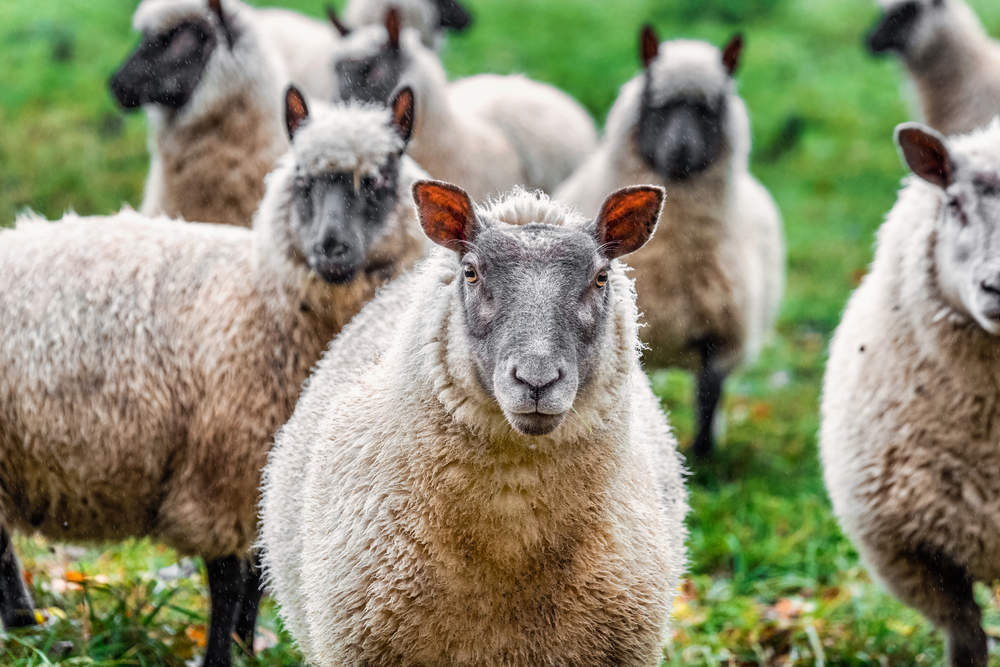
Whether or not animals are sentient is probably something few people in the UK — or anywhere else for that matter — had considered much before the fateful month of November 2017.
The question has, however, run rife on social media since MPs reportedly voted against animal sentience on 15 November.
The alleged decision sparked the launch of several petitions against the government, the vote, and environment secretary Michael Gove, with public outrage snowballing until politicians took to Twitter to defend the decision, and both prime minister Theresa May and Gove denied the stories in a series of statements.
Gove has also criticised the reliance on social media for accurate news stories, and the ease with which false information can be spread.
It seems — after millions of shares, tweets, and signatures — the government did not vote against the notion that animals experience emotion, but rather the legal procedures surrounding the implementation of animal welfare standards.
The whole debacle has highlighted several things; the pervasive grip social media exercises on public opinion, the fervent reaction issues of animal welfare will produce, the lack of public faith in the Conservative Party, and general fears for the state of a post-European Union UK it implies.
How well do you really know your competitors?
Access the most comprehensive Company Profiles on the market, powered by GlobalData. Save hours of research. Gain competitive edge.

Thank you!
Your download email will arrive shortly
Not ready to buy yet? Download a free sample
We are confident about the unique quality of our Company Profiles. However, we want you to make the most beneficial decision for your business, so we offer a free sample that you can download by submitting the below form
By GlobalDataThough the issue of whether the government believes animals feel emotion has been addressed, welfarists still insist that animal sentience is not sufficiently covered in UK law.
Many look ahead to the December House of Lords vote that will decide the matter, and the Green Party are expected to move another amendment to the Brexit bill when it gets to the House of Lords.
Public pressure is also on Gove to prove his commitment to progressing animal welfare.
Here’s a timeline of how we got here
-
15 November –– amendment for animal sentience proposed by co-leader of the Green party Caroline Lucas is rejected at the House of Commons by 18 votes
-
16 November — a story headlined MPs vote to reject inclusion of animal sentience in Withdrawal Bill appears on small agricultural news site FarmingUK
-
17 November — The story is picked up by site London Economic under the heading Government votes that animals can’t feel pain or emotion. This story has over 31,000 shares
-
19 November — A series of petitions are launched lobbying for the government to repeal the decision
-
20 November — The Independent publishes the first of its articles on the issue, headlined The Tories have voted that animals can’t feel pain as part of the EU bill, marking the beginning of our anti-science Brexit, and has received over 500,000 shares according to its public statistics
-
21 November — MPs Zac Goldsmith and Rachel Maclean take to Twitter to defend the vote and deny claims that they voted against animal sentience
-
22 November — Theresa May addresses the issue in Prime Ministers Questions, refuting claims that the vote denied animals sentience
-
23 November — Michael Gove releases a Written Ministerial Statement further denying stories that the government voted against animal sentience and saying the UK is committed to developing animal welfare after Brexit
-
24 November — Gove releases a video via Twitter expressing his commitment to ensuring animal welfare in a ‘properly comprehensive way’
-
24 November — The Independent apologises for spreading the story, as does explorer Ben Fogle
What Welfarists’ have said in response to recent developments
A spokeswoman for animal rights charity the RSPCA said:
The issue that animal sentience is not sufficiently covered in the existing legislation remains valid and is not ‘fake news’ and our press statements and social media posts have been very clear about the issue.
Caroline Lucas, who originally proposed the amendment, said that since the vote the government have been “backpedalling”:
What I was told in the chamber was that they had no need to take any account of my amendment because this principle of animal sentience was already recognised in UK law in the Animal Welfare Act of 2006. Now that is patently untrue, wrong and I am very glad that Michael Gove and others have been rapidly backpedalling and admitting that that’s not true.
Though the Humane Society broadly welcomed Gove’s statement, director Claire Bass said:
Acknowledging that animals have the capacity to suffer and feel pain is absolutely fundamental to protecting them from harm, and we need a binding imperative enshrined in UK law that will hold government to account, ensuring that animal welfare is fully taken into account in all UK law and policy-making. We can’t afford for this guiding principle to be thrown out with the Brussels bathwater and so look forward to hearing the government’s legislative plans in the very near future.
Nick Palmer, head of policy at Compassion in World Farming, told Verdict:
Our position is that it would be a very big step back to abandon the principle that animals are recognised as sentient beings and that their welfare needs to be taken fully into account when new policies are formulated – not just the current government but all future governments.





